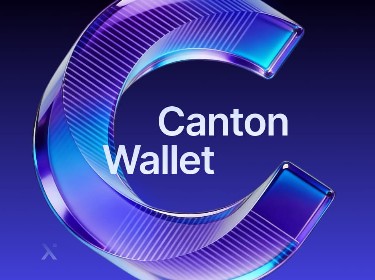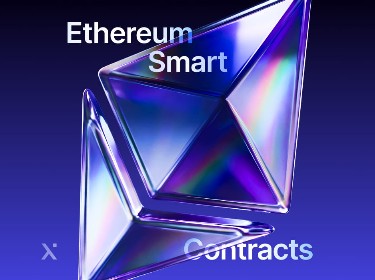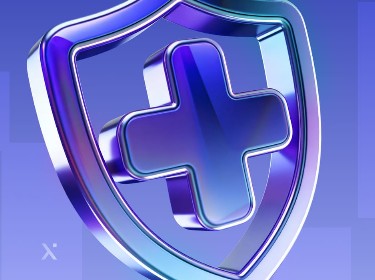We’re likely to witness the appearance of the new digital reality of the institutional financial world. The “network of networks” is steadily combating the pain points of modern crypto exchanges, such as regulatory scrutiny, security issues, and lack of interoperability. So, start reading and don’t say you weren’t warned!
In March 2024, 155 companies, including banks, technological firms, custodians, and exchanges like Binance U.S., Crypto.com, Gemini, and Kraken, participated in the Canton Network pilot. Such unprecedented support allowed the network to achieve impressive results. According to Copper Research, Canton Network has exceeded 500,000 daily transactions in October this year.
PixelPlex is always on the lookout for impactful technologies. Our experts have already developed a self-custodian Canton wallet and are planning to further contribute to the sustaining Canton Network ecosystem. We have discussed the benefits and the potential of the Canton Network for exchange development with our experts and blockchain consultants, and are happy to share the most recent tendencies.
What is Canton Network?
![]()
The thing about Canton Network is that it is different from traditional blockchain technologies we know. A blockchain we are used to is like a single, giant office building, where everyone works in the same open space, experiencing difficulty with privacy maintenance. Canton is like a whole business park with many private, secure buildings. So, participants are working together, yet they don’t disclose the details of their operations to each other. That’s why Canton is also called “Network of Networks.” Each company or app has its own private ledgers, so businesses cooperate without exposing their confidential data to competitors.
The second peculiarity lies in the Daml smart contract language. This language notes down the rules for transactions in Canton. Those who have permissions see the data and benefit from automatic self-execution of smart contracts. For example, the payment transfers to the supplier’s account as soon as the delivery status changes. It makes applications private and secure by design, reducing errors and conflicts.
The Daml development also allows for atomic interoperability. That means that the transaction succeeds or fails on all of the multiple ledgers involved. This completely eliminates settlement risk in complex trades across different organizations.
Finally, Canton.Network development services enable applications to scale horizontally. As the network gets busier, you don’t just upgrade one single computer. Instead, you add more computers (nodes) to handle the increased load. It’s like hiring more chefs for a restaurant to serve more customers instead of just having a single chef. Therefore, the network grows to handle the massive volume of global finance without getting slow or expensive.
Blockchain in Payment Services: Trends, Technologies, and Development Best Practices
The Opportunities of Banking in Metaverse: What Companies Must Know to Stay Competitive
Why choose Canton.Network for your exchange?
![]()
The features that make Canton Network different from its competitors are the reasons why it’s a worthy technology for the white label crypto exchange development. Canton Network transforms your exchange from a standalone platform into a connected hub within a global financial ecosystem. And here’s how it happens:
- Integration with institutional trading networks: Canton serves as a plug that links your exchange to a network of major banks, asset managers, and trading venues. This is deep, programmable liquidity you can build new products on.
- Elimination of settlement risk: With Canton, trades across different institutions settle atomically and instantly. Therefore, the trade and its settlement are the same event, removing the risk that one party fails to deliver.
- Embedded privacy and compliance: Canton.Network exchange development ensures you only share transaction details with direct counterparties, not the entire network. This simplifies compliance and protects your competitive edge.
- Scalability without bottlenecks: Add nodes to your network and scale horizontally, ensuring a high-performance experience for your users as you grow.
The Canton Network pilot was successfully completed in 2024. Twenty-two dApps executed over 350 simulated transactions, which demonstrated the network’s ability to perform secure atomic transactions among multiple participants. The dApps included asset tokenization, fund registry, and digital cash management. The trials confirmed that the network could support real-time settlement and immediate reconciliation across independent systems, while fully complying with strict regulatory and data privacy requirements.
Discover the technical merits of Canton.Network exchange development services:
| Merit | Explanation | Benefit for exchange |
| Atomic composability | Unrelated applications (e.g., a spot trade & a loan) can be composed into a single, atomic transaction | Enables complex, cross-product DeFi strategies without counterparty risk |
| Global synchronization | Ensures a consistent, unified state across all connected domains and applications | Prevents double-spending and ensures a single source of truth |
| Operator-mediated transfers | Allows for off-ledger agreement and on-ledger settlement, bridging TradFi and DeFi | Facilitates OTC trading and integration with traditional systems |
| Strong auditing | All actions are cryptographically signed and immutable | Simplifies compliance, reporting, and dispute resolution |
Cryptocurrency Exchange Development Cost: Key Factors & Estimates
Finding the Right Fit: TON vs Ethereum vs Solana
How to Create A White Label Crypto Exchange in 7 Steps
The Canton Network ecosystem and its benefits
![]()
Imagine a marketplace for financial institutions. It includes Canton.Network use cases. The ecosystem functions as a connected digital space where applications from different companies interact securely with each other. Businesses are interested in building in Canton, as it means developing a product that will become part of a pre-vetted, high-value network.
Leverage the network effect
When you develop on the Canton Network, you become closer to a growing community of the world’s leading financial players, such as Goldman Sachs, BNP Paribas, and Deloitte. Those names might comprise your potential partner base. The more participants that join, the more valuable the network becomes for everyone. By building your application here, you ensure it is visible and accessible to the exact institutions you want to do business with, dramatically simplifying business development.
Achieve interoperability by default
On traditional platforms, connecting your trading exchange to a custodian bank or a tokenized asset issuer requires complex, custom-built integrations. Canton eliminates this friction. The Canton.Network exchange development implies that your solution natively and securely communicates with other Canton-based services. If a client buys a digital asset on your exchange, the settlement with a digital cash app and the registration with a custodian happen automatically and instantly. This built-in interoperability allows for multi-party workflows that were previously too difficult or costly to build.
Accelerate your time-to-market
Building complex financial applications from scratch is a slow and expensive process. The Canton ecosystem includes a rich library of pre-built, open-source blueprints for common financial instruments and processes, built using the Daml smart contract language. Your development team does not have to start from zero. Instead, they can leverage these proven templates for products like bonds, loans, or derivatives, allowing you to focus your resources on customizing your unique value proposition and getting to market faster. Our DAML Development Services Guide contains use cases, pros, and cons of building in the Daml language.
Here are some of the key players in the Canton.Network ecosystem:
| Category | Example participants |
| Financial institutions | Goldman Sachs, BNP Paribas, Cboe Global Markets |
| Technology providers | Microsoft, Digital Asset, Deloitte |
| Infrastructure & custody | S&P Global, Zodia Custody |
| Legal & consulting | Linklaters, Oliver Wyman |
Inside Crypto Wallet MVP Development: Process, Costs, and Real-World Lessons
A Deep Dive into Post-Quantum Cryptography: The Next Security Frontier
Blockchain for Business: Beyond Cryptocurrency to Real-World Value
Canton.Network use cases for exchanges
![]()
Companies that offer cryptocurrency exchange development services often face challenges such as settlement risk and the low liquidity of digital assets. Canton Network addresses those challenges, and here’s how it works in practice.
Delivery vs. Payment (DvP) settlement
- The problem: In traditional trading, there is a gap of up to two days (T+2) between the trade execution and the final settlement. This creates counterparty risk and locks up capital.
- The Canton solution: An exchange connects to issuers of tokenized assets (bonds, stocks) and banks issuing digital cash. A trade on the exchange automatically triggers an atomic transaction, so the transfer of the asset and the payment occur simultaneously and instantly. This process is foundational to modern centralized crypto exchange development on secure ledgers.
- The result: Counterparty risk is eliminated, capital is freed up immediately, and the settlement process becomes fully automated, your partnering centralized exchange development company stays as a trusted advisor.
Unified liquidity pool for digital assets
- The problem: Tokenized assets are often traded on isolated platforms, which fragments liquidity and makes trading difficult for large institutional investors.
- The Canton solution: An exchange operating on Canton becomes part of a single network. This means an asset issued by one bank can be available for trading on your exchange, and also used as collateral on another participant’s platform. And it is possible without complex custom integrations. This interoperability extends to secure Canton Network wallet development, allowing assets to move freely and safely across the ecosystem.
- The result: The exchange offers its clients access to a much broader and more liquid market, attracting more participants and increasing trading volumes.
Automating margin calls and collateral management
- The problem: Calculating margin requirements and managing collateral is a complex, often manual process that requires reconciling data between multiple parties.
- The Canton solution: The exchange, clearing house, and client’s custodian bank all operate on synchronized applications. These applications update collateral values for all parties in real-time. If a margin call occurs, the system can execute a secure, atomic transaction, transferring collateral from the client to the exchange. This process guarantees immediate and verifiable settlement.
- The result: Operational risk and manual errors reduce with near-instantaneous collateral movement, making the entire financial system more resilient.
Canton Loop
The Canton Network’s first self-custodial wallet
First non-custodial wallet on Canton
Generated $3M revenue in 2 months since launch
Ranked in Top 10 Canton Coin Validator Leaderboard
Explore the case studyDeveloping a Canton.Network exchange MVP
![]()
Developing an MVP is a working condition for checking the viability of your business idea, shortening the time to market due to the core functionality without additional advanced features, and receiving the first real feedback.
The development of an MVP for a financial exchange built on the Canton Network includes the following steps:
-
Discovery and design (4-6 weeks)
During this stage, a tech partner usually finds out what the client is planning to build, what objectives they wish to meet, available resources, etc. As for Canton.Network exchange development services, this initial phase includes the following:
- Finalizing the scope of the core functionality (financial instruments, user roles, and the key transaction lifecycle events)
- Daml data modeling
- API and system architecture (backend services, REST APIs, connectors between the exchange’s systems and the Canton ledger)
-
Core development (12-16 weeks)
This is the execution phase, where we build the functional components of the exchange based on the designs from the previous phase.
- Daml smart contracts implementation
- Backend development
- Basic UI for swaps (to connect Canton-compatible wallets, view available tokenized assets, create swap orders, and view transaction history)
-
Testing & deployment (6-8 weeks)
This final phase ensures the system is robust, secure, and ready for a controlled launch.
- Security and logic audits
- Performance and load testing
- Deployment to a test network (Canton TestNet)
Code, Capital, and Compliance: A Deep Dive into Canton Network Smart Contract Development
A Network of Networks: How Canton Is Redesigning Financial Infrastructure
Telegram Open Network (TON): Comprehensive Guide, News, Insights & Updates
The budget might be around $250,000 to $500,000. This is a significant investment, as the project is usually complex and requires rare expertise in the Daml smart contract language, sophisticated backend and API development, and security audits to meet the high standards of financial institutions. At PixelPlex, we discuss the costs during the discovery phase and suggest optimization strategies to our clients.
Factors influencing the price
Developing the Canton Network exchange is a complex project involving various factors. We’ve compiled a table summarizing the costs.
| Factor | Description | Approximate cost range |
| Security & logic audit | Independent audit of Daml contracts and system architecture to ensure safety and correctness | $50,000 – $100,000 |
| Advanced features | Complex instruments (e.g., swaps, lending), advanced order types, or sophisticated risk management | $50,000 – $100,000+ |
| Third-party integrations | Connecting to KYC providers, price oracles, traditional payment rails, or custodian banks | $25,000 – $75,000 |
| UI/UX design | Creating an intuitive, professional-grade interface for institutional users | $25,000 – $75,000 |
Building your dream team
To create an excellent Canton.Network exchange, you need competent experts in your team. Here are these people:
- Daml developers (2-3): They form the core of the project. They model the business logic and write the smart contract code. The expertise in Daml is currently specialized, but the availability is expanding.
- Backend engineers (2): These specialists construct the APIs and middleware necessary for your existing platforms. They should know languages like Java or C# to communicate with the new blockchain layer.
- DevOps / SRE (1-2): They are responsible for managing node infrastructure, CI/CD, and monitoring.
- Frontend engineer (1): They build the trading UI.
- Product manager (1): This person knows your vision of the future solution and prioritizes features.
The average hourly rate of these experts’ services depends on their experience, geographical location, and the complexity of the project.
| Role | Average pricing (hourly) |
| Daml developer | $120 – $200+ |
| Backend engineer | $90 – $150 |
| DevOps / SRE | $80 – $130 |
| Frontend engineer | $70 – $110 |
| Product manager | $90 – $140 |
| QA engineer | $70 – $100 |
Are Corporate Crypto Stashes the Future? A No-Nonsense Guide to DATs
How to Create a Mining Pool? A Step-by-Step Guide With Real-Life Case Studies
Web3 Development: What It Takes to Build the Future
Canton Network development partners
![]()
Canton Network has the potential to change the landscape of the exchange ecosystem. At PixelPlex, we expect seamless 24/7 cross-border trading in the future. The institutional-grade security of the exchanges will meet the strictest regulatory standards. This new version of exchange will feature everything from stocks and bonds to currencies on a unified digital ledger. Gradually, the technology will allow for composable financial products, i.e., modular, customizable instruments that users will bundle and trade. It will create unprecedented levels of efficiency and liquidity for a global institutional audience. The following technological partners can apply their experience and knowledge to help you achieve such results.
1. PixelPlex
We’re developers with over 13 years of experience in blockchain. PixelPlex is also a member of the Canton ecosystem. So, we have both deep knowledge and practical experience in the Canton Network. Here are our most recent projects:
- Canton Loop: The first non-custodial wallet for the Canton Network. It has already reached the top 10 position on the Canton Coin Validator Leaderboard.
- The CantonView indexer: This is a tool that indexes and tracks network transactions, which is vital for monitoring activity and solving problems.
- Canton KYC platform: It’s the market’s first reusable KYC service that demonstrates the “verify once, use everywhere” benefit.
We successfully use the secure Daml language to build robust, compliant systems that meet the high standards of financial institutions, ensuring the protection of sensitive data and assets.
2. Digital Asset
Digital Asset is the creator of the Canton Network and the Daml smart contract language. Digital Asset provides the foundational platform that enables institutions to securely synchronize their operations. Their flagship products include the Daml SDK for application development and the Canton Network protocol itself, which allows previously siloed systems in finance to interoperate. As the protocol architect, they collaborate directly with a global ecosystem of partners to ensure the network meets the highest standards for scalability and privacy.
3. IntellectEU
IntellectEU is a leading technology integrator and a Premier Daml Partner, specializing in connecting the Canton Network to legacy enterprise systems and capital markets infrastructure. They are known for their Catalyst platform, which simplifies the integration of Daml applications with existing systems like SWIFT, and for developing custom Daml-based solutions for payments, insurance, and capital markets.
4. Tata Consultancy Services (TCS)
Tata Consultancy Services is a global IT services and consulting giant that brings enterprise-scale implementation power to the Canton Network. Leveraging its vast experience with Fortune 500 companies and its dedicated Blockchain practice, TCS helps large financial institutions design, build, and integrate Canton-based solutions. Their specialization lies in creating enterprise-grade applications for areas like cross-asset tokenization, trade finance, and settlement.
5. Temple Digital Group
Temple Digital Group is a specialized digital assets advisory and development firm. They act as strategic partners, helping clients define their digital asset roadmap and then delivering the technical execution to bring it to life. Their expertise spans tokenization strategies, CBDC design, and the development of custom Daml applications tailored to specific business workflows.
Here are the Clutch ratings of the above-mentioned companies, except Digital Asset. As the protocol creator, they operate more as a platform vendor and do not have a typical client-service profile on Clutch.
| Company name | Clutch rating & details |
| PixelPlex | 4.9/5 – Consistently praised for technical expertise and blockchain specialization |
| IntellectEU | 4.8/5 – Highly rated for system integration and as a Daml Premier Partner |
| Tata Consultancy Services (TCS) | 4.7/5 – Recognized for global scale, reliability, and enterprise IT services |
| Temple Digital Group | 5.0/5 – A newer, highly specialized firm with a perfect score from early clients |
Conclusion
Canton Network solves the fundamental trilemma of privacy, scalability, and interoperability for financial institutions. Building an exchange in Canton means moving your business closer to the forefront of institutional DeFi and the tokenized asset economy.
Although the technology is advanced and requires a specialized team, the investment will pay off in the long run. PixelPlex is ready to tackle ambitious projects and further contribute to this promising ecosystem.
Whether you’re ready to explore a specific application for your business or simply want to consult with a team that has hands-on building experience, we are here to help. Contact us and we’ll construct the next generation of finance together.
FAQ
Public blockchains like Ethereum or Solana are transparent by default, making all transaction data visible. This is unsuitable for confidential institutional trades. Canton.Network allows for sharing the data with authorized participants only. Therefore, it securely interacts with tokenized assets from banks and digital cash applications, and Canton functions as an interconnected financial ecosystem.
We have proven experience within the Canton ecosystem. PixelPlex has already developed a couple of successful solutions in the Canton.Network and we’re planning much more. We’re also happy to share our expertise through our blog articles, like Canton.Network Explained and others.
Transaction details are kept private between the involved parties and are not broadcast to the entire network. Only the cryptographic proof of the transaction is shared, ensuring complete confidentiality for order books and trades.
Yes, a key part of the development process is building integration layers or “connectors.” These allow your existing systems for user management, reporting, or fiat gateways to interact seamlessly with the Canton ledger and its smart contracts.
A custodial wallet is managed by the exchange (like a traditional brokerage account), while a non-custodial wallet gives users direct control. For an institutional exchange, a hybrid approach is common: offering custodial solutions for ease of use while supporting non-custodial wallets for sophisticated clients who want direct asset control.
A timeline of 6-9 months for a core MVP is realistic. It involves phases for design, Daml contract development, backend/UI build, and rigorous testing.




